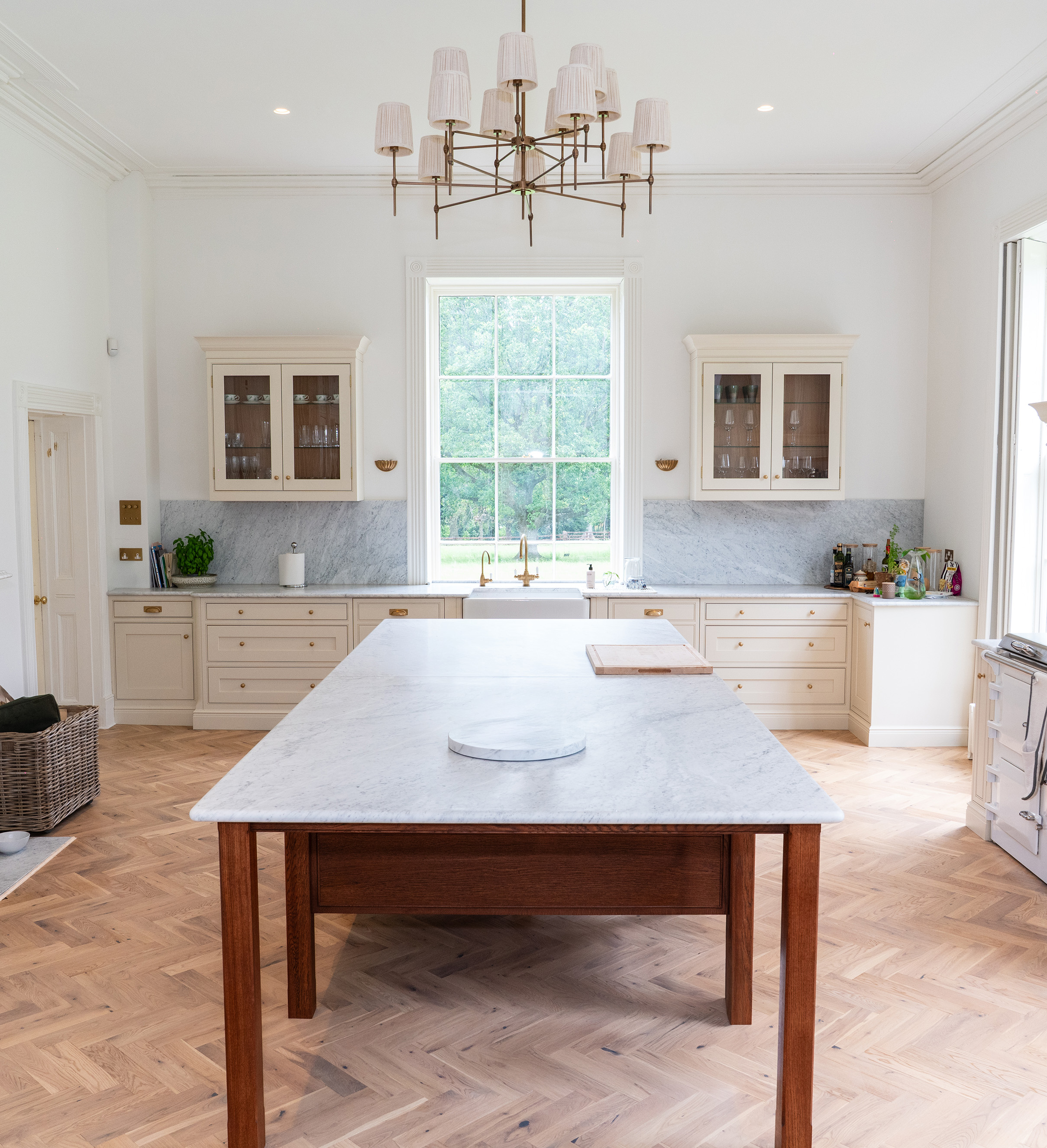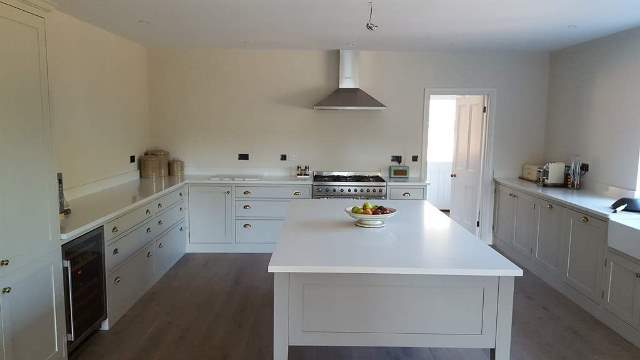
A Straightforward Guide to Stone Worktops
Stone worktops remain a timeless favourite for kitchens, bathrooms, and even outdoor spaces. Their durability, elegance, and wide material options make them ideal for both modern and traditional homes.
If you’re planning a renovation or starting from scratch, this guide breaks down everything you need to know — from material types and finishes to installation and care — with insights from Stoneworld’s years of experience in bespoke stone design.
The first big decision is selecting the type of stone. Each has its own strengths, aesthetic, and care requirements.
Granite
A durable, natural stone that’s highly heat-resistant and perfect for high-use kitchens. Each slab is unique, with organic patterning and rich tones. It needs periodic sealing to protect against stains.
Quartz
Engineered for consistency and strength, quartz is non-porous, easy to clean, and available in a huge variety of colours. It’s ideal for busy households that want a low-maintenance option.
Marble
This soft, classic stone adds elegance and luxury. However, it’s more prone to etching and staining, so it suits lower-traffic areas or clients who don’t mind a little patina over time.
Porcelain
Porcelain is ultra-dense and UV-resistant, making it suitable for both indoor and outdoor use. Its colour range includes highly realistic marble-style finishes.
Limestone & Sandstone
These natural stones are less common in kitchens but often chosen for outdoor worktops, garden kitchens, and rustic interior spaces.
At Stoneworld, we supply and fabricate all of these materials, and our team can guide you through selecting the right one for your project.
Once you’ve picked your stone, the next step is turning it into a fitted worktop. Here’s how that typically works.
1. Templating
After your base units are installed, we carry out a site visit. Our team takes detailed digital measurements to ensure everything fits with precision.
2. Fabrication
Using those measurements, your slab is cut and finished in our on-site workshop. This stage includes shaping edges, polishing surfaces, and cutting out for sinks or hobs.
3. Installation
Finally, the worktop is delivered and installed. Most installs take just a few hours, and your space is left clean and ready to use.
Working with a company like Stoneworld means the whole process is kept in-house — no subcontractors, no miscommunication, and complete quality control from start to finish.

Real kitchen with finished Quartz worktop
Stone worktops aren’t just a flat surface. You can customise them in several ways to create a completely bespoke result.
Edge profiles: from clean pencil-round edges to classic ogee or modern chamfered
Drainer grooves: often added next to undermount sinks for practicality
Cut-outs: for sinks, taps, hobs, sockets, or even pop-up features
Upstands and splashbacks: to create a seamless look with the same stone
Additional elements: like windowsills, table tops, or outdoor benches
At Stoneworld, we frequently create made-to-measure pieces like curved breakfast bars, bullnosed pool edges, and digitally templated Roman Ends for outdoor designs.
The finish of your stone will affect both its appearance and how you clean it.
Polished stone has a glossy, reflective surface. It makes colours pop and adds a sleek, luxurious feel. It’s also easier to wipe clean but may show more fingerprints.
Honed stone has a matte appearance, offering a softer, more natural look. It’s especially popular in contemporary designs. However, it can be slightly more porous and benefit from regular sealing.
If you’re unsure, viewing full slabs in natural light is the best way to compare finishes before committing.
Cleaning and Maintenance
Stone worktops are easy to maintain — as long as you know how to care for them properly.
Quartz and porcelain are virtually maintenance-free. Just use a soft cloth and mild soap.
Granite should be sealed annually to keep it stain-resistant.
Marble may require more frequent sealing and care, especially in high-use areas.
Avoid abrasive cleaners, bleach, and anything acidic like lemon or vinegar. These can dull or damage the surface over time.
Yes — but only certain materials will perform well outdoors.
Porcelain and granite are both excellent for outdoor kitchens or BBQ areas. They resist UV rays, weather, and temperature changes. Quartz, however, should be avoided outdoors, as it can fade or warp in direct sunlight.
Stoneworld regularly works on outdoor living projects and can fabricate matching features like firepit surrounds, pool coping, steps, and seating areas to complement your main worktop.
Absolutely — and it’s highly recommended. Photos often don’t capture the true variation and texture of stone. In-person viewing allows you to see colour movement, pattern scale, and finish under natural light.
Stoneworld’s Oxfordshire showroom and workshop are open by appointment. You can view full slabs, talk through your project, and get hands-on with samples and ideas.
Final Thoughts
Choosing a stone worktop is about balancing performance, style, and long-term practicality. With the right guidance, it can be a smooth, exciting part of your renovation — and the result is a timeless, functional centrepiece you’ll use every day.
Whether you’re looking for a simple upgrade or a fully bespoke design, Stoneworld has the materials, experience, and craftsmanship to bring your vision to life.